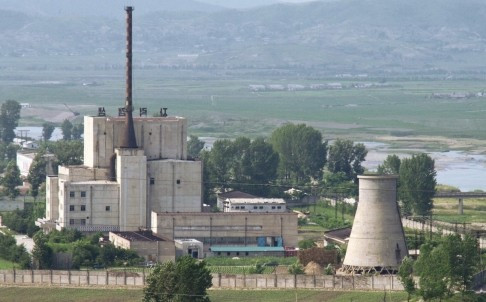IAEA says North Korea has doubled the size of its nuclear facilities

North Korea has expanded its nuclear facilities, the International Atomic Energy Agency (IAEA) has said, citing satellite images that showed "renovation and construction activities" at the Yongbyon site. The director general of the UN agency, Yukiya Amano, told a 35-nation board that the Yongbyon nuclear complex is believed to "house uranium enrichment centrifuges, which could make bomb fuel".
Amano was quoted as saying: "Since my last report, we have observed renovation and construction activities at various locations... particularly at the Yongbyon nuclear complex." The Yongbyon centre is North Korea's biggest nuclear facility and operates its first nuclear reactors. It is located in Nyongbyon county, around 90km north of Pyongyang. The fissile material for the isolated country's nuclear weapon tests in 2006 and 2009 was produced at Yongbyon.
Amano stressed that "it [Yongbyon nuclear complex] had doubled in size", but that the operation status of the "facility was unknown".
"The Yongbyon site was also identified for including a smaller reactor and a larger one under construction. The IAEA's satellite observation indicated that an electrical switchyard had been built next to the larger reactor, while major technical components had yet to be installed in the reactor itself," he said.
"We have observed renovation and construction activities at various locations within the site. These appear to be broadly consistent with the DPRK's statements that it is further developing its nuclear capabilities," the IAEA director general said, referring to the country's official name, Democratic People's Republic of Korea.
Recently, North and South Korea exchanged some artillery fire over the border but avoided a full-scale military confrontation by negotiating a truce. But tensions remain high in the Korean Peninsula.
Yonhap news reported that the arch enemies had agreed to reunite families divided since the end of the Korean War for a week in late October. The agreement, reached 8 September between Red Cross representatives from either side, would allow 100 families who have not met in 60 years to live at the Mount Kumgang resort in North Korea.
© Copyright IBTimes 2025. All rights reserved.






















